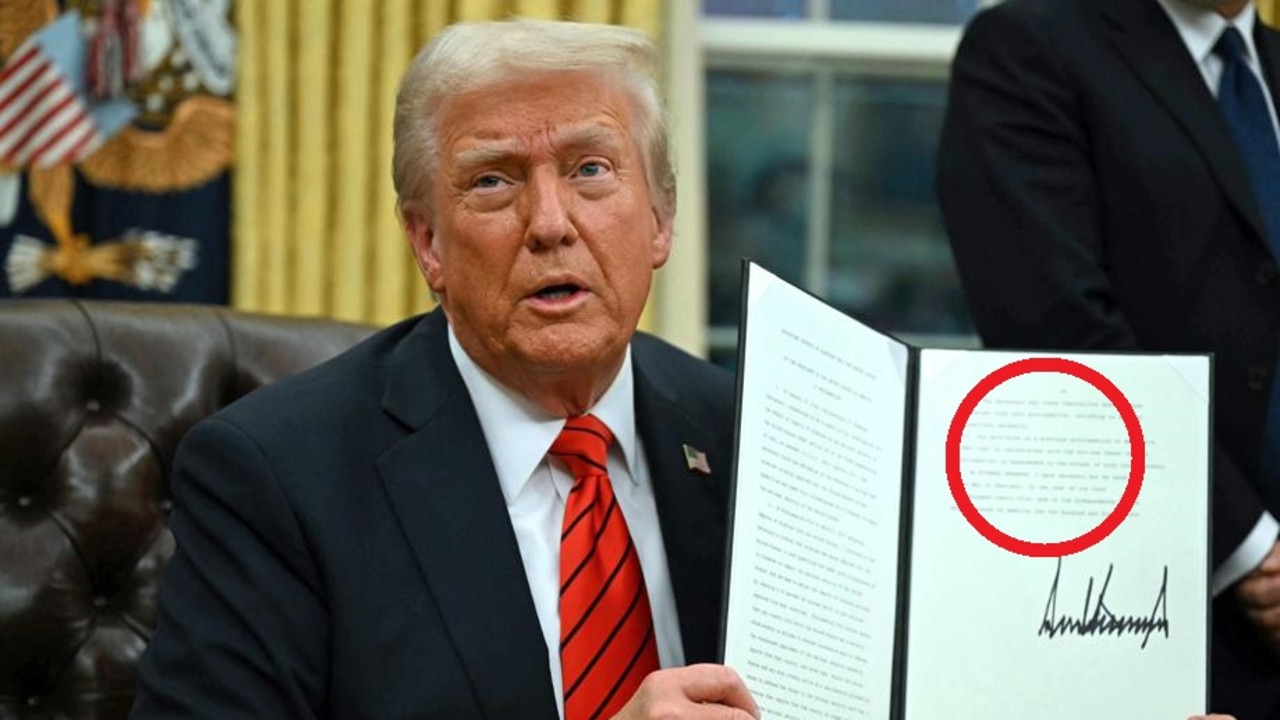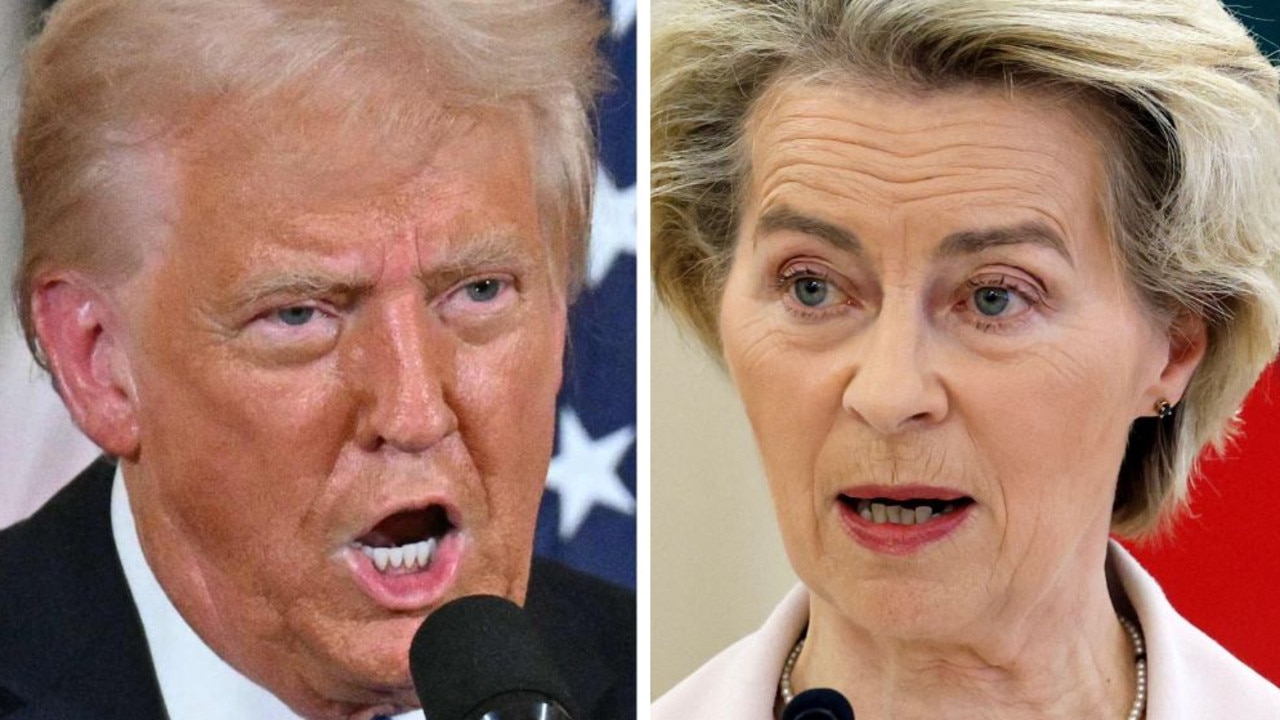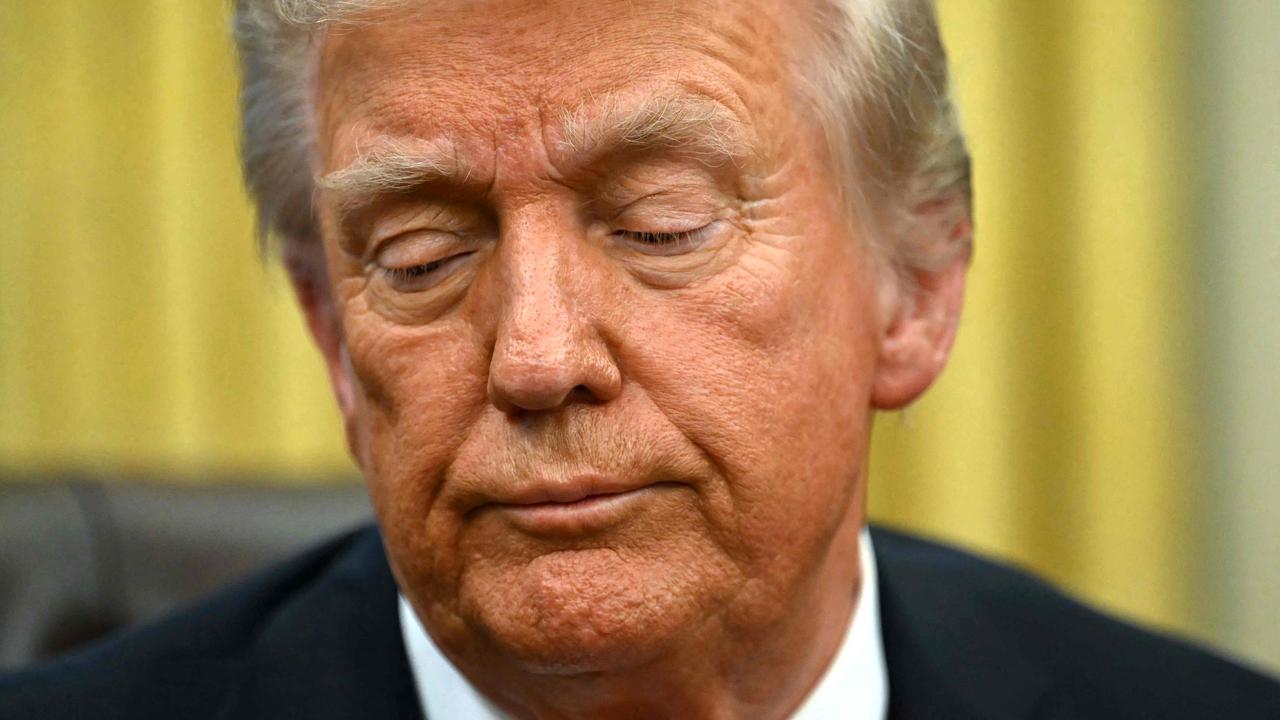Massively important bill passed to avert US government shutdown
The US has narrowly avoided a federal government shutdown with a massively important bill being passed, technically, after the deadline.
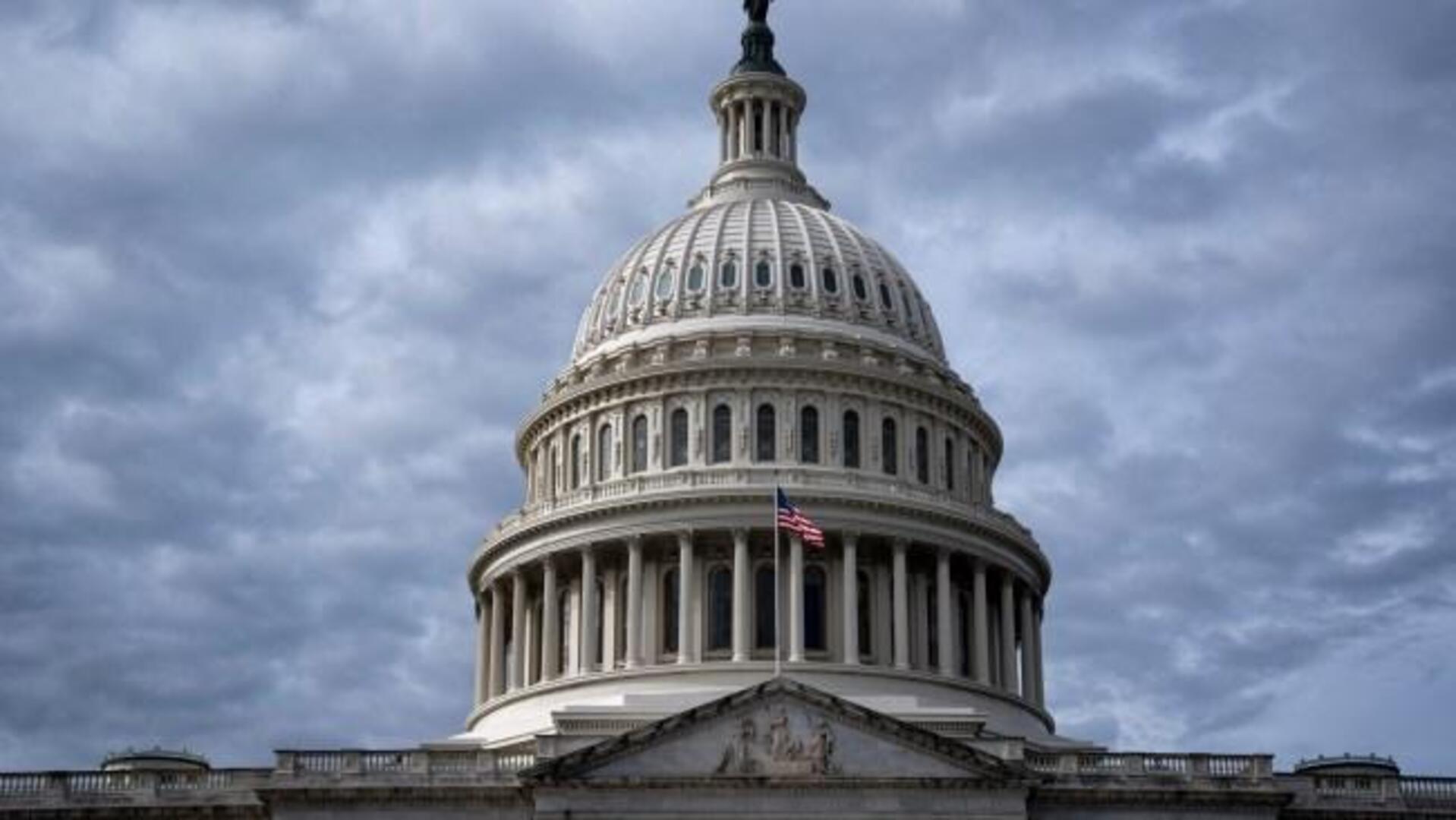
World
Don't miss out on the headlines from World. Followed categories will be added to My News.
IN THE US
The US Senate has passed a massively important bill to fund the federal government and despite missing the deadline, the government will not shut down as feared.
There were fears the government was heading towards a shutdown despite the stopgap funding bill passing the House of Representatives this morning — with the bill needing to then be decided by the Senate.
The House of Representatives voted with just hours to spare, with Democrats joining Republicans to advance a funding bill keeping the lights on through mid-March.
Although the House is run by the Republicans, who introduced the bill, 34 of the party’s backbenchers voted against it, while almost every Democrat was a yes.
Lawmakers then sent a package to the Senate that would keep federal agencies running through mid-March — but the upper chamber only had until midnight (4pm AEDT) to follow suit or federal agencies would begin shutting. It missed the deadline.
However, after the deadline lapsed, the White House said the Office of Management and Budget was not shutting down the federal government “because there is a high degree of confidence that Congress will imminently pass the relevant appropriations and the President will sign the bill on Saturday”.
With the midnight deadline already expired by minutes, senators dropped normal procedure to fast-track the package to a vote, halting government shutdown preparations and saving Christmas for up to 875,000 workers at risk of being sent home without pay.
The stop gap funding bill was passed by the Senate before 1am (5pm AEDT). The vote was 85 to 11.
“It’s good news that the bipartisan approach in the end prevailed... It’s a good outcome for America and the American people,” Democratic Majority Leader Chuck Schumer said in a speech on the Senate floor.

The Democratic-led upper chamber was expected to follow the House, but with senators often dragging their feet over complex legislation, there were fears that the funding fight might spill into next week.
Congress’ setting of government budgets is always a fraught task, with both chambers closely divided between Republicans and Democrats.
What would have happened if the bill did not pass?
If the bill did not pass, the US Government would effectively close down. Non-essential operations would wind up, with up to 875,000 workers furloughed and as many as 1.4 million more required to work without pay. Government services could also close.
The latest drama intensified after Republican President-elect Trump and tech billionaire Musk, his incoming “efficiency czar,” pressured his party to renege on a funding bill they had hammered out with Democrats.
Two subsequent efforts to find compromise fell short, leaving Republican House Speaker Mike Johnson at the last chance saloon as he huddled with aides to keep government agencies running.
If the bill was to fail Senate scrutiny, non-essential government functions would be put on ice. Employees in key services like law enforcement would continue working but would only be paid once government functions are back up.
Many parks, monuments and national sites would have closed at a time when millions of visitors are expected.
The House-passed bill avoids all that by funding the government until mid-March in a package that includes $110 billion in disaster aid and financial relief for farmers.
It is essentially the same as a bill that failed miserably in a vote on Thursday — except without a two-year suspension of the country’s self-imposed borrowing limit demanded by Mr Trump.
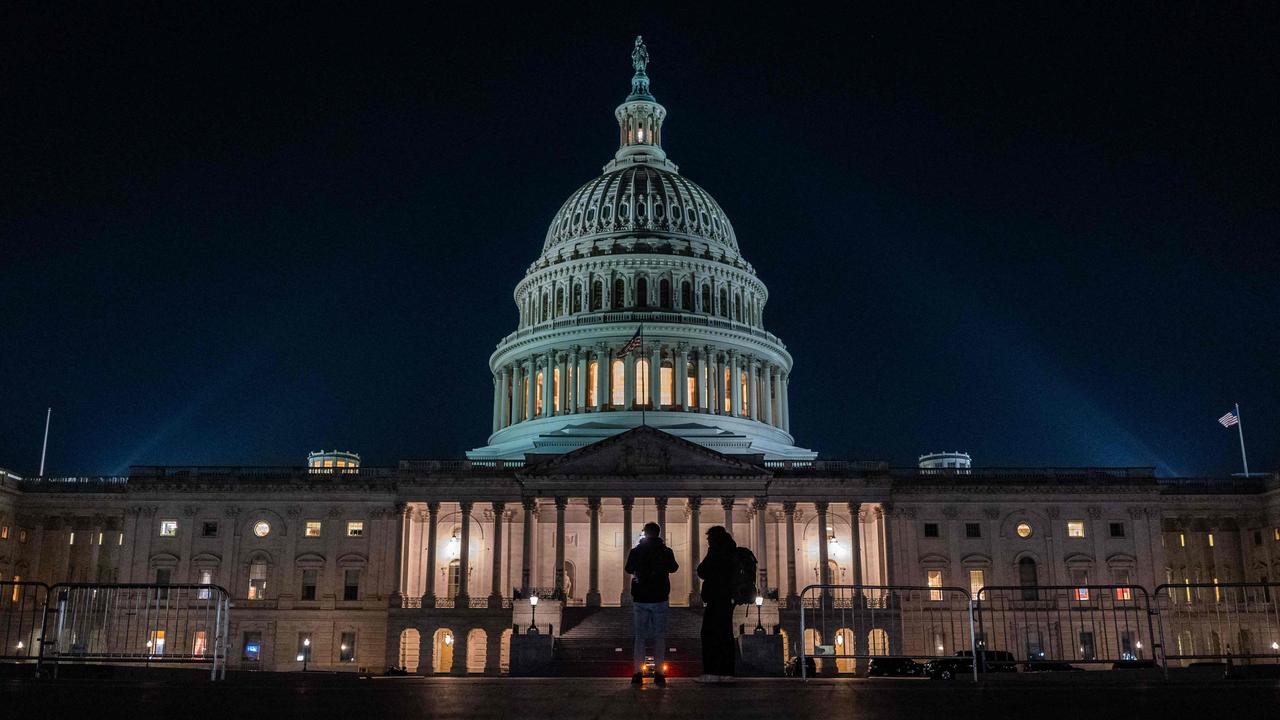
‘Let it begin’
Elon Musk appeared again to have been doing his best to marshal conservatives against the deal ahead of the House vote, as he posted: “So is this a Republican bill or a Democrat bill?” The influence of the world’s richest man over the Republicans — and his apparent sway with Mr Trump — has become a focus for Democratic attack, with questions raised over how an unelected citizen can wield so much power.
There is growing anger even among Republicans over Musk’s interference after he trashed the original funding agreement in a blizzard of posts — many of them wildly inaccurate — on his social media platform X.
“Last time I checked, Elon Musk doesn’t have a vote in Congress,” Georgia House Republican Rich McCormick told CNN.
“Now, he has influence, and he’ll put pressure on us to do whatever he thinks the right thing is for him. But I have 760,000 people that voted for me to do the right thing for them.”
Mr Trump had been clear that he was willing to see a shutdown if he did not get his way.
“If there is going to be a shutdown of government, let it begin now, under the Biden Administration,” he said on social media.
Open rebellion against Trump
Mr Trump may have wanted to point score over the Democrats when he and tech billionaire Elon Musk scuppered a spending bill to avert a US Government shutdown, but it has galvanised many Republicans to defy the President-elect instead.
“No apologies,” tweeted Republican congressman Chip Roy who openly defied Mr Trump by voting against a revamped spending bill which could have added to America’s $58 trillion debt pile.
Mr Trump furiously said the Texas politician had “no talent,” and should lose his seat for refusing orders.
Mr Chip was one of 38 Republicans – a significant number – to ignore Mr Trump’s demands. It’s a sign he may not have things all his own way when he steps into the White House next month.
Drama exploded on Wednesday when an interim budget, nutted out over months by Republican House Speaker Mike Johnson and the Democrats, was presented to the House of Representatives.
This temporary funding package, known as a “continuing resolution,” would have kept the Government spending ticking along until mid March, several months into Mr Trump’s second term. At that point, the new president could have tried to implement his budget.
But Elon Musk led the unexpected charge against the bill. Many hours later, Mr Trump and Vice-president elect JD Vance also chimed in urging Republicans to vote down the very budget they had drafted.
The bill includes more than $US100 billion in disaster relief requested by the White House, $US30 billion in aid for farmers, restrictions on investment in China and the first pay raise for politicians since 2009.
But Mr Musk, Mr Trump and Mr Vance objected to what they said were Democratic add-ons to the budget. That’s despite the Republicans claiming, for instance, that the Biden administration had not spent enough on disaster relief funding for victims of recent hurricanes.
“If Democrats threaten to shut down the government unless we give them everything they want, then CALL THEIR BLUFF,” said Mr Trump on social media.
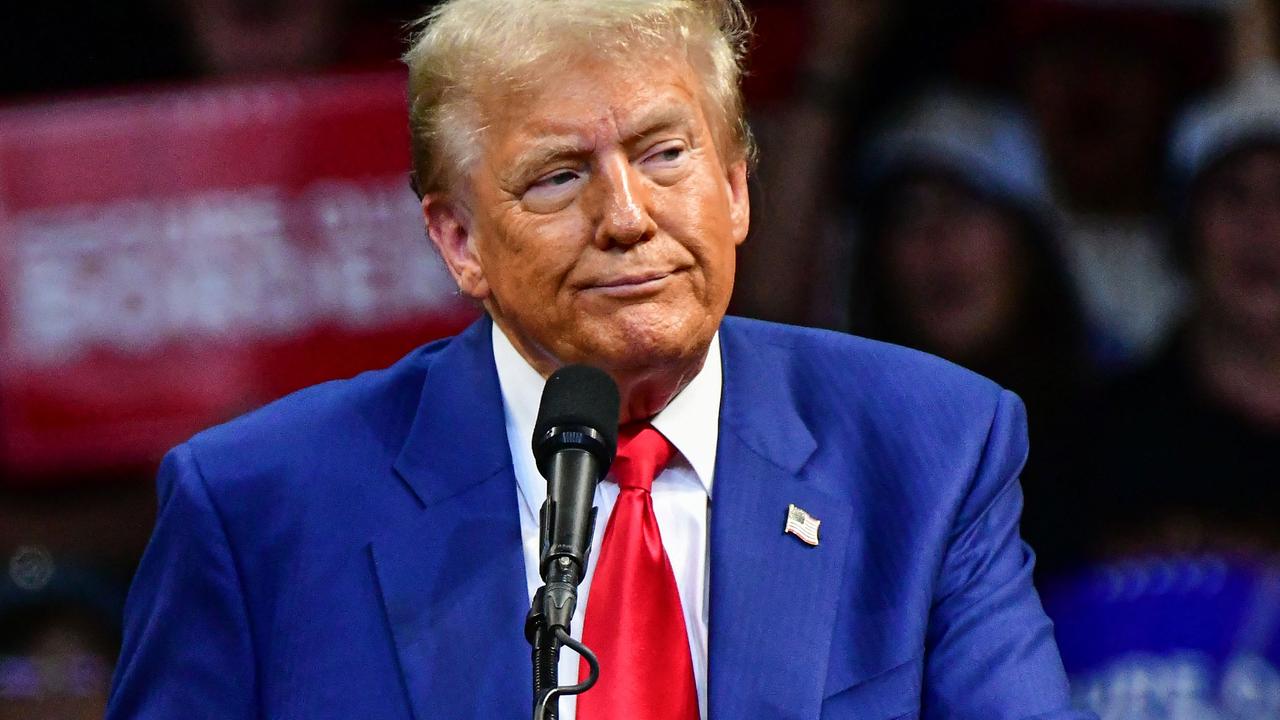
Mr Trump’s denouncement of the bill was particularly humiliating for Speaker Johnson who has been trying to placate the incoming president while ensuring the government can function by working with the Democrats. He knows his job is on the line with wild suggestions Elon Musk could replace him.
The initial bill duly failed in Congress on Wednesday.
Then on Thursday, the Republicans came up with a new version of the bill, endorsed by Mr Trump.
Some of the so-called “pork” had been stripped out, including millions of dollars to fight children’s cancer.

And some of Mr Trump’s demands had been shoehorned in. The key one was the lifting of the debt ceiling. This allows the US Treasury to borrow more money to finance more public spending. But it also racks up more public debt. If the government spends more than it borrows, it could default on its debt which would lead markets into turmoil.
“All Republicans, and even the Democrats, should do what is best for our country and vote YES for this bill!” Mr Trump said.
“Yeah, nah,” was the reaction from the Democrats who were in no mood to play nice on a new bill they hadn’t been consulted on.
But more than that, a chunk of economically fiscal Republicans, like Chip Roy, said raising the debt ceiling was a step too far.
Mr Trump’s version of the bill failed by a hefty 174 to 235 votes with 38 Republicans voting with the Democrats against it.
That sent Mr Trump into a fury.
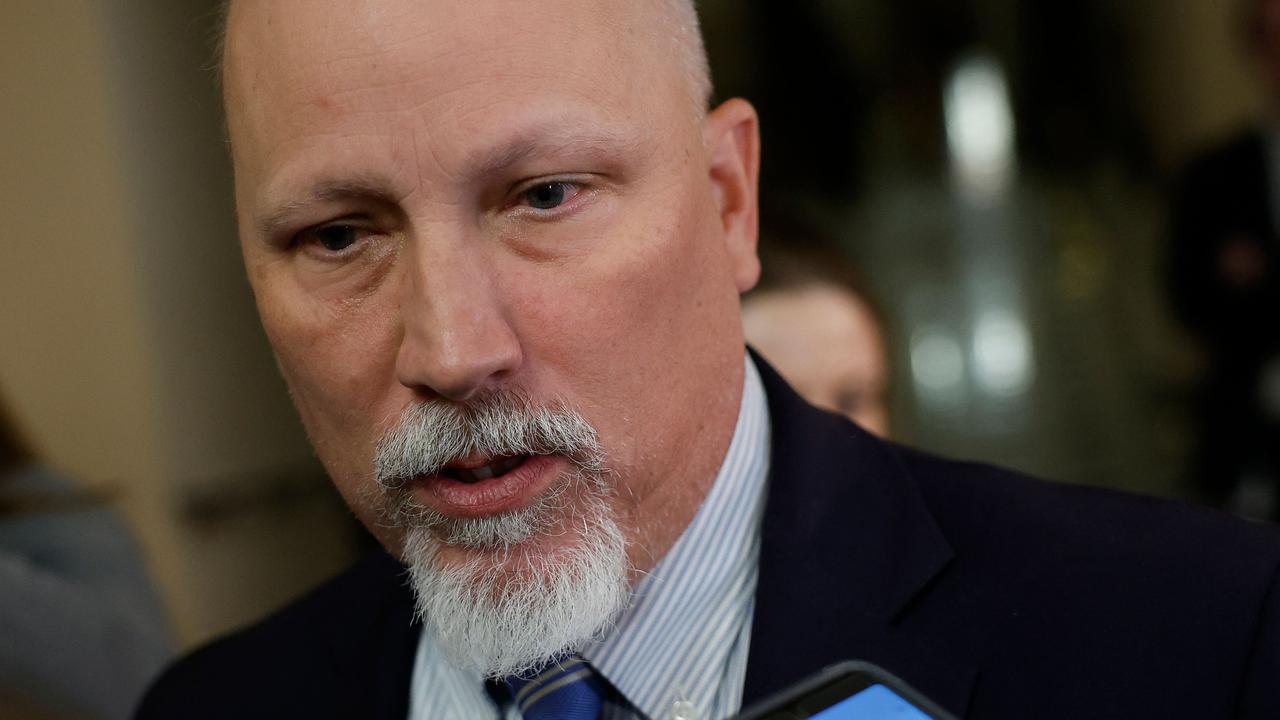
‘No apologies'
Mr Trump lambasted “Republican obstructionists” – seemingly GOP politicians who don’t wholeheartedly agree with him – and said they should be “done away with”.
Mr Roy, he added, should be “dismissed as being utterly unknowledgeable as to the ways of politics, and as to Making America Great Again.”
“Chip Roy is just another ambitious guy, with no talent.”
He then called for the Texan to be kicked out of Congress at the next election.
“I hope some talented challengers are getting ready in the Great State of Texas to go after Chip in the Primary. He won’t have a chance!”
Mr Roy, who is a conservative, was unrepentant.
“My position is simple – I am not going to raise or suspend the debt ceiling (racking up more debt) without significant and real spending cuts attached to it,” he said on social media platform X.
“I’ve been negotiating to that end. No apologies”.
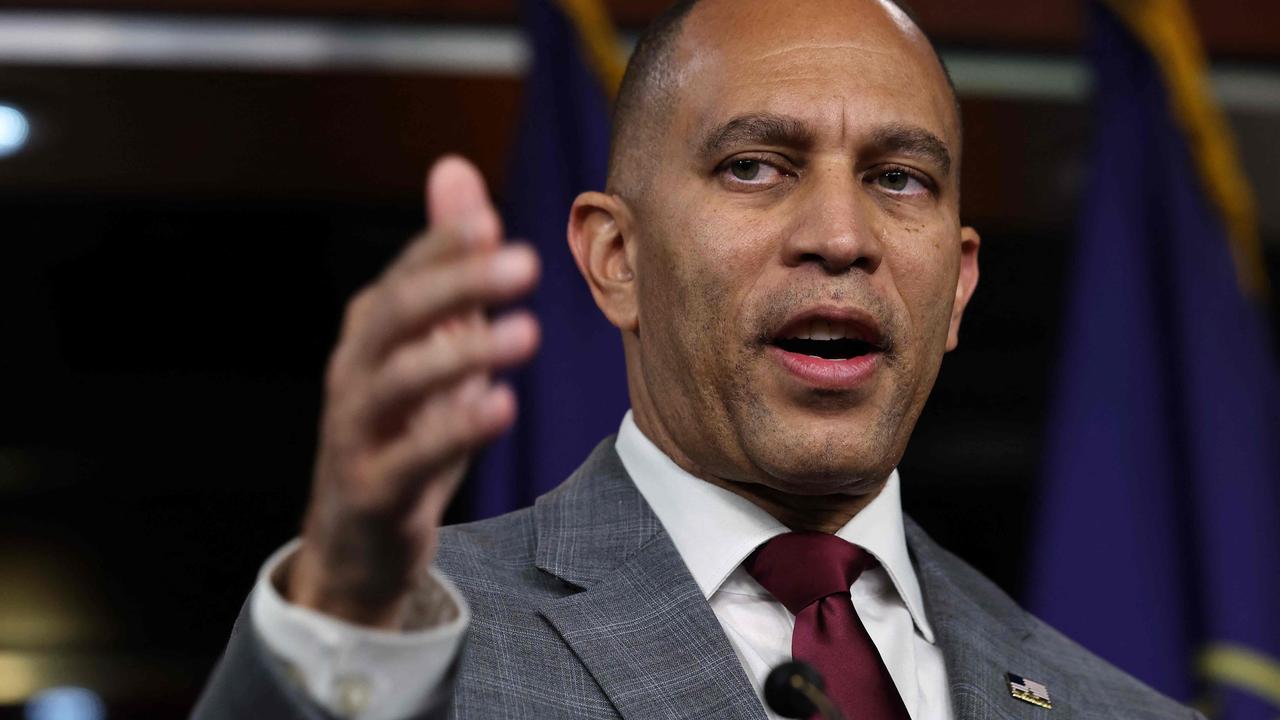
Democratic Minority Leader Hakeem Jeffries rubbished the budget bill: “The … proposal is not serious, it’s laughable”.
“Extreme MAGA Republicans are driving us to a government shutdown”.
While Joe Biden’s’ White House said it was a “giveaway for billionaires”.
The defiance of Mr Roy and the other Republicans has shown that while Mr Trump, and now apparently Mr Musk, have enormous sway over the GOP, they do not have total authority.
It has highlighted the Republican Party’s tenuous hold on power. Yes, Mr Trump’s Republicans will have the trifecta of the White House, the House of Representatives and the Senate. But his majority in the two houses is slim. If only a few Republicans disagree with Mr Trump, many of his plans could be toast.
Already, Mr Trump’s pick for Attorney-General, Matt Gaetz, withdrew from the role after it became clear enough Republican senators loathed him that he wouldn’t be confirmed.
Republicans will likely try again with a more pared-down version on Friday, US time, although the party leadership offered no clear path forward, telling reporters they would have to meet to discuss a “Plan C”. That could mean laborious votes on individual parts of the budget.
– with Chantelle Francis and AFP
More Coverage
Originally published as Massively important bill passed to avert US government shutdown



